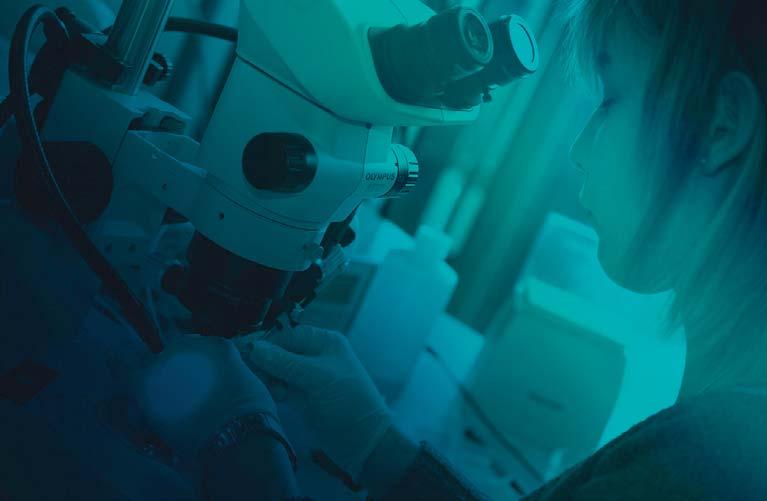Innovation from field to beanburger? Now more than ever, Flanders Research Institute for Agriculture, Fisheries and Food (ILVO) is the place to be for applied scientific research on sustainable agriculture, food and marine themes. ILVO tackles complex issues from the agri-food chain in an integrated and multidisciplinary way. Its expertise is also being noticed across Europe, as shown by the growing number of international research projects. Supported by funds from Flanders, Belgium, Europe and from private companies, ILVO is doing innovative work around protein diversification. This line of research is currently receiving a great deal of attention.
W
e come from a time when the (very complete) proteins from milk, eggs, meat and fish were our first choice for a balanced diet. Animal protein is likely to stay relevant in the future, and the animal production chain will remain economically important. ”We support them by researching a variety of sustainability-related questions.” At the same time, ILVO is answering the loud calls for more edible proteins from plants, algae, insects and microbial processes. “This will not be a protein ‘transition’,” predicts administrator-general Joris Relaes. “Instead, the various sources of protein will co-exist. We are proactively building scientific knowledge and expertise for the newer protein sources, often together with companies”.
the soil and reducing the need for fertilizer), and several beneficial effects on biodiversity. “These new crops are a great economic opportunity. All the necessary links are in place for the further processing and marketing of legumes”.
New chain, thanks to research
© ILVO
Before the flywheel of this new chain can catch on, research is needed on several fronts. Farmers need grounded advice about which cultivation method to use, which seeds are best for their farm, and about their choice of machinery. Food processors want to know how they can control or improve the ILVO administrator-general Joris Relaes texture, taste, mouthfeel, (anti-)nutritional characteristics, and other aspects of those plant-based (and Pulses: the future other alternative) proteins in order to develop truly tasty, healthy and commercially feasible recipes. “In recent years ILVO has ILVO has more than 600 researchers, including bio-engineers, invested in developing knowledge in all of these areas,” says microbiologists, IT and robotics specialists, social scientists and Joris Relaes. “Those efforts are being recognized. A whole series economists, food technicians, field trial experts and more. “Our of our protein-related research project applications have already cross-sectoral approach is a strength. And we try to diseminate been approved and are in progress. We substantiate the ‘value’ and implement our scientific results as much as possible throughout of legumes for society and their contribution to the European the economy,” says Joris Relaes. ILVO is meeting the increasing Green Deal”. demand for knowledge about the local cultivation, processing and consumption of protein-rich crops such as soy, chickpea, faba (red) bean or edamame within Belgium - and by extension across Europe. The seeds or beans of pulses (legumes) are essential ingredients for people who either want to vary the protein on their plate or who eat an exclusively vegetarian or vegan diet. This protein evolution has potential benefits for agriculture: a wider crop rotation, the ability of leguminous crops to fix atmospheric nitrogen in their roots (thus improving
n
© ILVO
n
o
v
a
t
i
o
n
T e
c
h
n
o
l
o
g
y
Flanders Research Institute for Agriculture, Fisheries and Food (ILVO)
© ILVO
I
ILVO
64
Burgemeester Van Gansberghelaan 92 9820 Merelbeke Tel.: +32 (0)9 272 25 05 Email: Greet.Riebbels@ilvo.vlaanderen.be http://www.ilvo.vlaanderen.be

















































































































